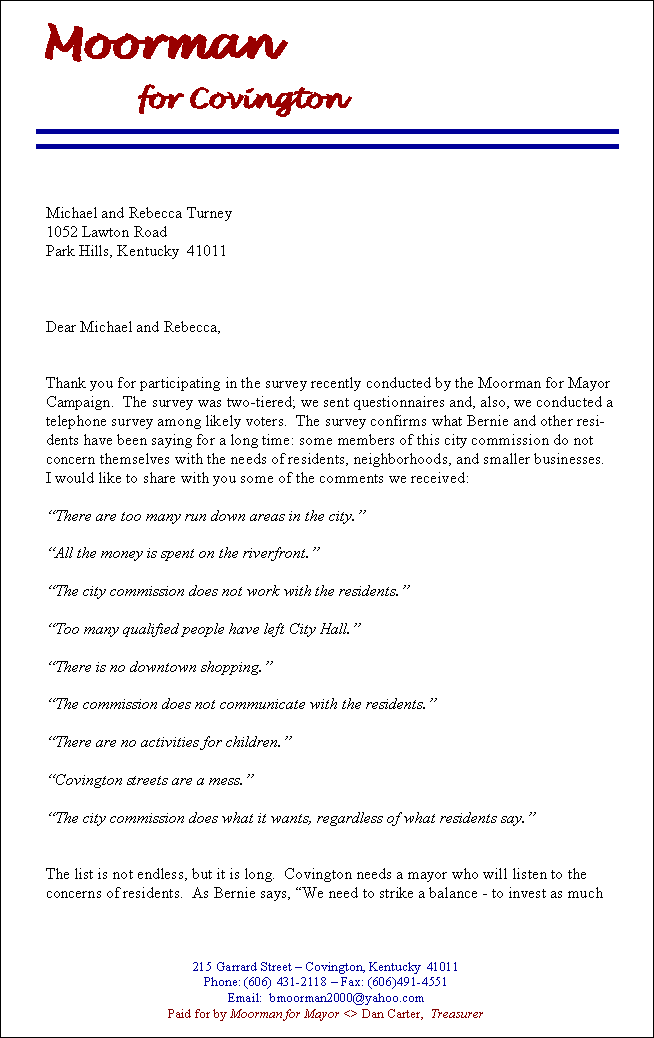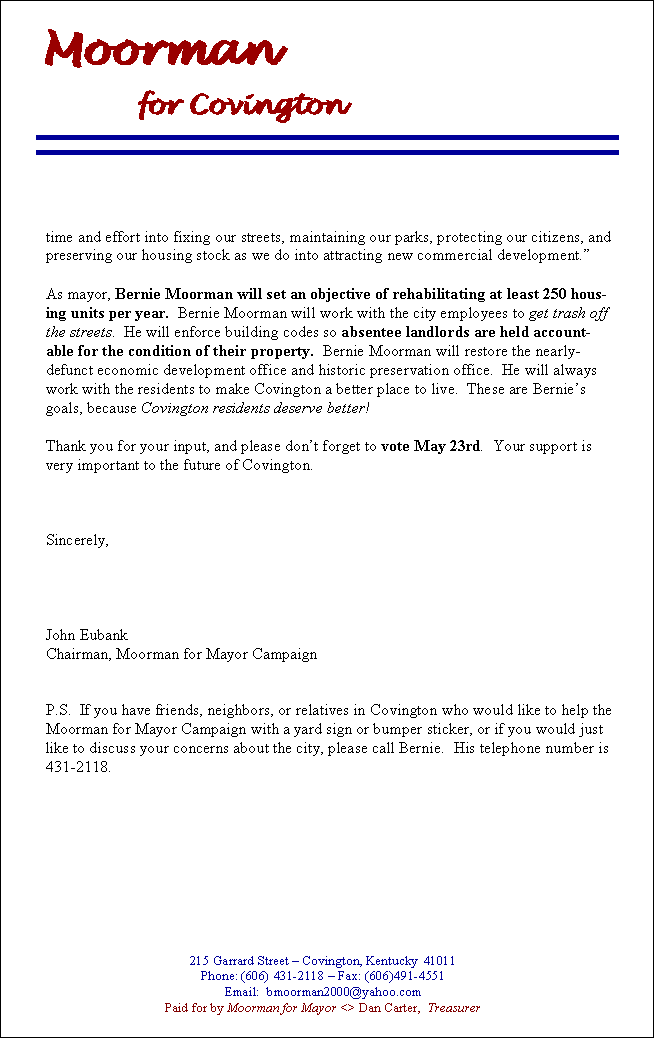

As this response to survey participants says, our survey was also conducted over the telephone. There were two major differences among the mail survey and the telephone survey; the mail survey enabled the respondents to give an "excellent" rating, while the rating choices in the telephone survey included only good, fair, or poor. This method forced the telephone respondents to give a biased rating of the city commissioners' performance. Yet, giving them choices created the impression they chose "fair" or "poor" of their own accord. Also, the telephone survey included three open-ended questions: What upsets you most about City Hall? What could Mr. Moorman do to improve Covington? and, What else could Mr. Moorman do to improve Covington? These questions were the basis for the above response letter.
Each recipient received a different version of the letter from me, based on their responses in the survey. For instance, if Michael Turney said he was most upset because the city spends all its money on the riverfront, then that was listed first among the stated complaints from respondents. Likewise, The first quoted complaint from a respondent in the southern end of the city might be, The city commissioners ignore the south end of the city.
The intended effect of this response was to affirm each resident's complaints, to prove Bernie Moorman understands their complaints, to introduce other negative issues that might not have occurred to the respondent, and to illustrate that Bernie is responsive to the needs of residents. The letter also includes a post script, inviting the individual to call Bernie at his home, giving each person a sense of Bernie's concern for their issues.
I decided the letter should be sent by me rather than the candidate. The basis for this decision was one of image; Bernie is above polling, while it is the expected role of a campaign manager. Also, a letter sent by me allowed for a much stronger rebuke of the opponents. The fact that these "quotes" were from residents further removed the possibility of being accused of running a negative campaign. Another benefit of using direct quotes from residents is that it negates any discounting effects; that is, an accusation coming from the Moorman Campaign would be less credible than one coming from someone who had nothing to gain by criticizing the city commissioners.
Once we discovered the issues important to key publics, and framed the campaign within those issues, we were prepared to spread our message with a direct mail campaign.